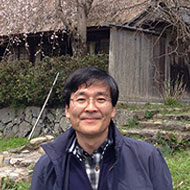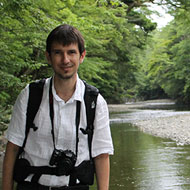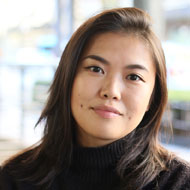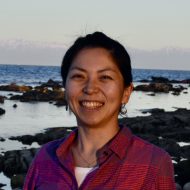Staff Profileスタッフプロフィール
Tsunao Watanabe
Director, Operating Unit Ishikawa/Kanazawa,
United Nations University Institute for the Advanced Study of Sustainability
Mr.Tsunao Watanabe graduated from the Faculty of Agriculture of the University of Tokyo with a major in landscape architecture in 1978. After serving as Director of the Biodiversity Policy Division and Councilor for Nature Conservation in the Ministry of the Environment of Japan, he was appointed as Director-General of the Nature Conservation Bureau in January 2011. He played a pivotal role in the success of the 10th meeting of the Conference of the Parties to the Convention on Biological Diversity (CBD COP10) in 2010 in Nagoya City, Aichi Prefecture. He has also been engaged in research as a Senior Research Fellow of the Japan Wildlife Research Center since October 2012. He has been Director of the Operating Unit Ishikawa/Kanazawa (OUIK) since January 2014.

Juan Pastor Ivars
Research Associate, Operating Unit Ishikawa/kanazawa,
United Nations University Institute for the Advanced Study of Sustainability
From Denia, Spain, a city bathed in the light of the Mediterranean. He moved to the ancient capital of Kyoto in 2009 where he deepened his understanding of traditional Japanese culture.
His main areas of interests are “space” and “nature”. He holds an MA in architecture with a focus on building from Polytechnic University of Valencia, and an MA in architecture with a focus on landscape architecture from the University of Technology of Kyoto through a Monbukagakusho scholarship. He was a JSPS fellow at Kyoto University and received a doctorate in architecture from the Polytechnic University of Valencia with a focus on Japanese gardens. His doctoral thesis was on “Ma and Oku, Ogawa Jihei and Japanese Garden of the 19th Century”. Professionally, he has worked for six years in a public government organization in Spain as an architect, urban planner and legislator; has undertaken diverse internships in architecture studios, including the Kengo Kuma firm; and provided part-time assistance for three years at Kyoto Gakuen University in Kameoka, focusing on the topic of “Nature and City”. At OUIK, he will draw on his knowledge from the fields of architecture, urbanism and landscape ecology, as well as his experience as a researcher, designer and academic, to work towards his vision of “nature reclaiming the city”

Yoko Tomita
Programme Coordinator, Operating Unit Ishikawa/Kanazawa,
United Nations University Institute for the Advanced Study of Sustainability
Prior to joining UNU-IAS, she worked at Hakusan Tedorigawa National Geopark as a Coordinator of International Relations, which also involved working closely with UNESCO and the Japanse Geoparks Network (JGN) on global geopark projects. At OUIK, overseeing the coordination of research projects, event planning, and executing public relations activities is part of the role. Additionally, she is leading the capacity development programs for climate change issues, sustainable development, and Globally Important Agricultural Heritage Systems (GIAHS). Originating from Kaga City in Ishikawa Prefecture, currently based in Kanazawa City.


Sayako Koyama
Research Associate, Operating Unit Ishikawa/kanazawa,
United Nations University Institute for the Advanced Study of Sustainability
She completed MSc Conservation Science at Imperial College London in the UK. After working at an environmental consultancy in Tokyo and experienced conservation related work as a park ranger in Ogasawara Islands, she worked as a freelance translator especially in the field of environmental conservation. She then moved to Ishikawa Prefecture and was entrusted to support OUIK’s research. She also worked as a staff member of Kanazawa University on the Satoyama Satoumi Meister Training Program and she also supported the Noto SDGs Lab in Suzu City as a collaborative researcher. At present, she works as a research associate of OUIK focusing on biocultural diversity in Noto region and Noto GIAHS (the Globally Important Agricultural Heritage Systems). She also supports Noto SDGs Lab. in Suzu City as a collaborative researcher. Since the Noto Peninsula earthquake, she has been engaged in surveying local wells in the area.




